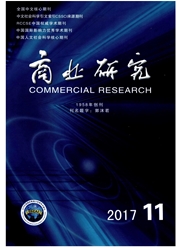

 中文摘要:
中文摘要:
减贫是国家与区域经济社会发展的重要任务之一,政府一直重视农村扶贫工作,异地搬迁脱贫是其中重要的一种扶贫方式。归纳国家及部分省区扶贫开发政策理念嬗变历程与实践,梳理解构移民扶贫系统并探寻关键利益相关者诉求。基于耗散解构理论阐释移民扶贫系统运行的自适应变化逻辑以及有土集中安置、无土集中安置、过渡安置、移民自由迁徙等不同移民扶贫安置模式的适用性。解析移民扶贫减贫解困机理,同时指出扶贫移民发展中遇到的产权归属不清、移民非农就业能力受限与农村土地产权改革、移民政策与其他惠农政策衔接、基础设施建设与产业发展协同、扶贫移民精准扶贫体系再设计等对接精准扶贫战略中亟待解决的关键问题。
 英文摘要:
英文摘要:
Poverty reduction is an important task of the national and regional economic and social development.The government has attached great importance to the work of rural poverty alleviation.Summarized the evolution and practice of the concept of poverty alleviation and development policies in partial Province,combing the deconstruction of immigrant poverty alleviation system and explore the demands of key stakeholders.Application of the theory of dissipative deconstruction,the article explains the logic of running of the immigration system and the applicability of different immigrant poverty alleviation and resettlement patterns.Analytical immigrant poverty alleviation mechanism of the poverty problem reduction and for encountered in the development of poverty alleviation immigrant property ownership is not clear,cohesive immigrant employment ability limited,immigration policies and other preferential agricultural policies,infrastructure construction and industrial development cooperation,redesigned of the poverty alleviation system and the other key issues.
 同期刊论文项目
同期刊论文项目
 同项目期刊论文
同项目期刊论文
 期刊信息
期刊信息
